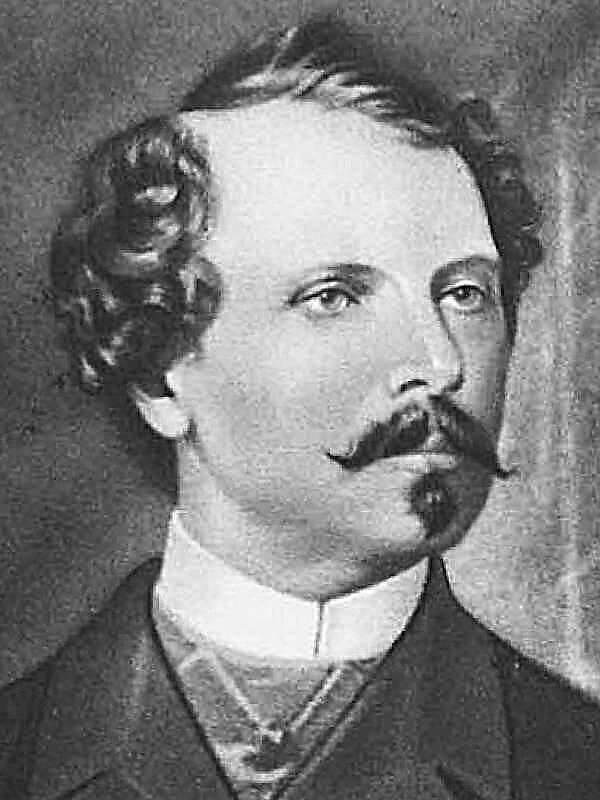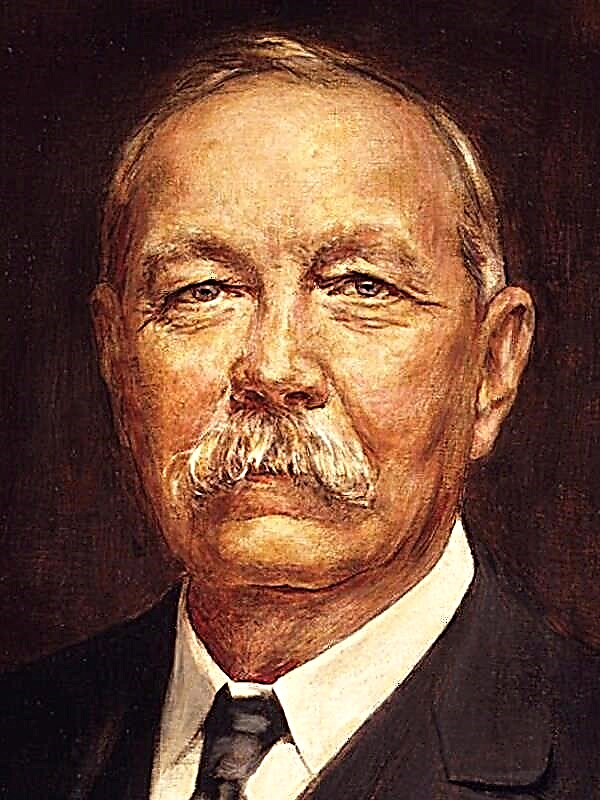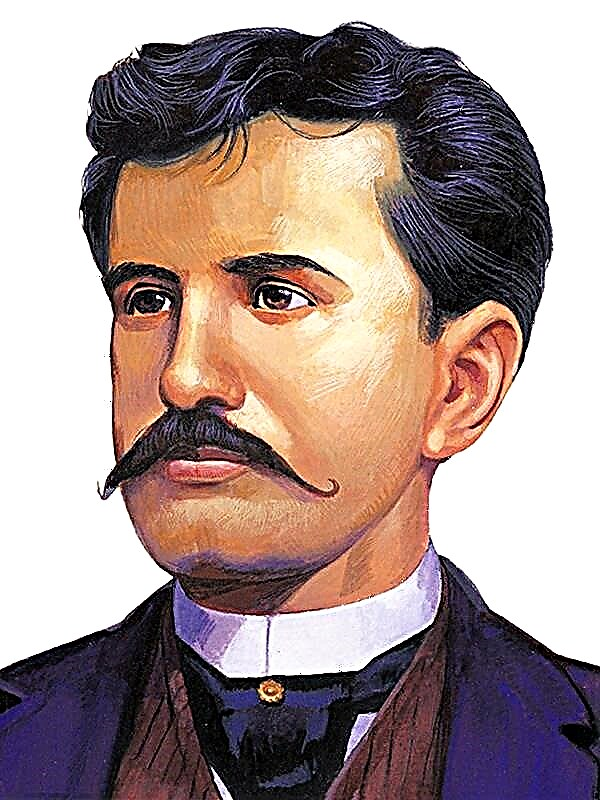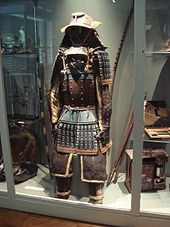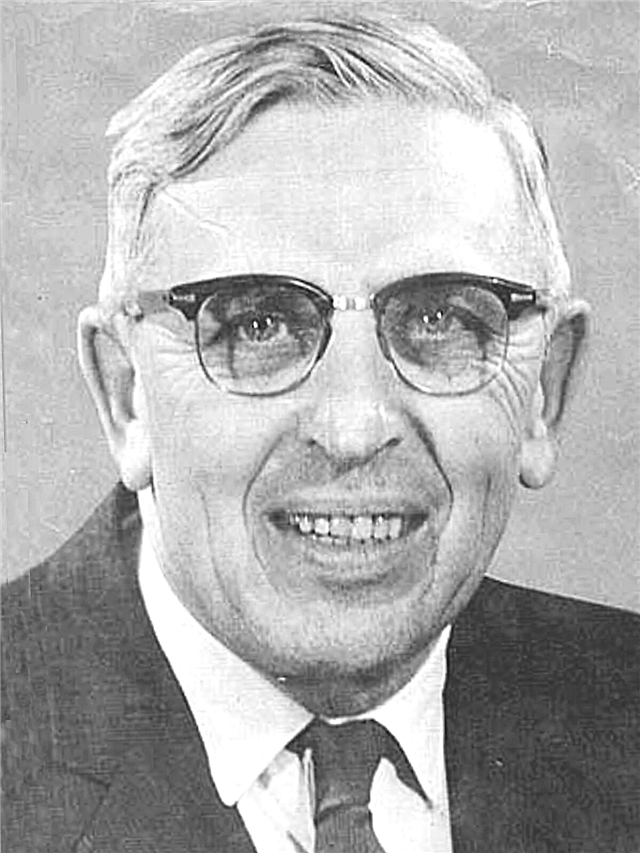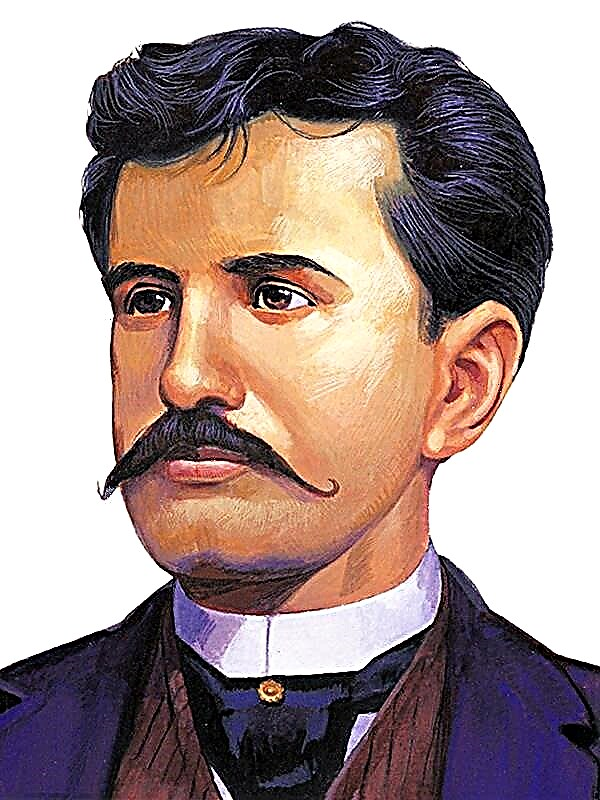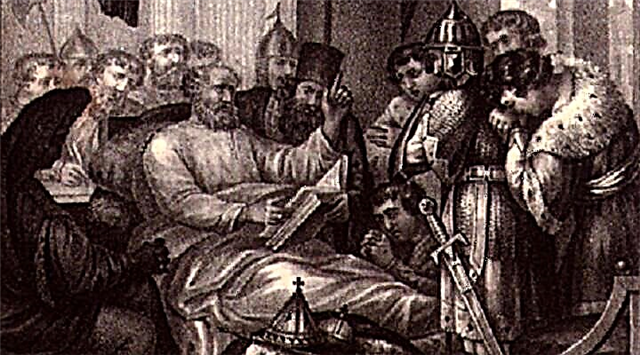: Nazi Germany. Emigrant Germans fleeing the Nazis. One of them roams around Europe with his sick wife, dreaming of freedom and America.
The narrator wanders through the nighttime Lisbon, hoping miraculously to get tickets for himself and his wife on tomorrow's ship to America. They are German immigrants hiding from the Nazis. Suddenly, a German comes up to him and offers to give two tickets to the same ship. In exchange, he asks to listen to him until the morning.
All night they go from bar to bar. The stranger introduces himself as Joseph Schwartz. This is not his last name, but the name coincided with the present. He took the passport of a deceased Austrian subject at the request of the deceased. Schwartz was forced to leave Germany after the establishment of the fascist regime: he did not support Hitler, so the brother of his wife Elena, a devoted Nazi Georg, betrayed him. Joseph sat in a concentration camp, then fled from there. Five years after that, he did not contact his wife, fearing to harm her. Finally, a thirst for a meeting prompted him to decide to illegally cross the border and go to Osnabruck's hometown.
In the homeland of Schwartz, the curtain of Nazi propaganda was struck.
The leading newspapers were terrible - deceitful, bloodthirsty, arrogant. The whole world outside Germany was portrayed as degenerate, stupid, treacherous. It turned out that the world had no choice but to be conquered by Germany.
There was nothing to compare the Germans with - there was strict censorship on foreign sources of information.
Not daring to immediately contact his wife, he called a doctor friend. A friend briefly explained the situation in the country:
In general, bad, Joseph. Everything is bad. But outwardly everything looks brilliant.
And although in 1938 the Munich Pact gave many frivolity and hope, “Hitler immediately broke the promise to occupy only the Sudetenland, and not all of Czechoslovakia. Now the same thing started with Poland. The war was coming. ”
The doctor helped the couple see each other. Elena reproached Schwartz for leaving without her, leaving her with a hated family. He spent with his wife night and day in their apartment. In the evening, Georg appeared. Joseph, grabbing a clerical knife, hid in the closet. As soon as his brother left, Elena drove Schwartz to the hotel. She decided to leave with her husband. She lied to Georg that she was going to Zurich to appear to the doctor so that she would not be missed right away.
Joseph again tried to cross the border illegally, through the Rhine, but he was caught. A letter written by Elena allegedly on behalf of George saved him: the man was mistaken for an employee with a special assignment. Then Schwartz took the train to Zurich.
The couple spent some time in Switzerland, then in France. For Elena came the authorized brother, then he himself. Seeing Joseph, George became furious. But until the Nazis entered France, he could not grab his sister's husband and take Elena away.
They "were people" until September 1939. Schwartz and Elena were arrested and sent to different internment camps. Joseph warned his wife about this: German emigrants eke out a miserable existence abroad, interrupt from earning to earning and constantly end up in camps. But now, in Lisbon, a man can call it a happy time: the worst French camp is a thousand times better than a German concentration camp.
There is one good side to unpleasant memories: they convince a person that he is now happy, even if a second ago he did not believe it.
Schwartz managed to escape. He immediately went to the camp to Elena. Joseph was able to get there in the form of a fitter, but the prisoners refused to give information about his wife. In the evening he saw her at the fence. Elena crawled under the wire, they spent the night in the forest together: “And again a gust of tenderness enveloped her, and she caressed me like never before ... I loved her very much, but I felt a kind of coldness and estrangement. There was sadness in tenderness, and sadness still strengthened tenderness.As if we found ourselves somewhere there, beyond the fateful line, and it was no longer possible to return because of it ... "When leaving, Elena often said:" I love you more than you can ever imagine. Do not forget this! Never!"
This continued until the Gestapo appeared in the camp: Georg found a sister. The woman asked the doctor to declare her dead, then she can escape with her husband. He learned from Dr. Schwartz that Elena was seriously ill.
The couple began to wander. They settled in an empty house that looked like a castle. Joseph and Elena traveled to occupied Bordeaux. There was no way out. While the couple went for reconnaissance, things were left in the courtyard. But the owner was not going to give them away. Before the entered non-commissioned officer, Elena played the role of a devoted Nazi, and they managed to return things.
When they returned, the castle was occupied by officers. I had to settle in a guesthouse. Elena was getting worse. She felt the disease “as something unclean, as if worms were swarming in her,” she believed that her husband would be disgusted with her if she found out. My wife began to return later to the guesthouse. Schwartz was obsessed with an American visa, but getting it is very difficult.
Schwartz once met an American who vouched for them with Elena at the consulate. Joseph was told to come back in a week. But soon near the consulate of the Schwartz, the Gestapo captured. The young handsome promised him the most sophisticated sadistic torture. Georg appeared. He tortured Schwartz in order to achieve the goal: to find out where his sister is. Handsome did it for pleasure.
Joseph promised to show where Elena is. When he and Georg were driving together in a car, Schwartz pulled out a sewn blade from behind a cuff of trousers and stuck it in George's throat. He fell out of the car. Joseph hid the body in the bushes, got rid of the Nazi clothes, took his passport and drove away by car. He asked a friend to fit George's passport under him. An emigrant with signs of torture on his body became an Obersturmbunführer Schwartz.
The husband told everything to Elena. Now you need to get a Spanish visa. Before the consulate, the gendarme, having seen the Nazi car, saluted and opened the door in front of Schwartz. Bitterness gripped him: “You had to become a killer so that you would be greeted.”
Near the consulate they pick up a boy: he escaped from a concentration camp and wanted to get to Lisbon, where his uncle said: "We took one life ... We must save one."
Emigrants without incident were able to cross the border of Portugal, where there are no fascists.
I was waiting: when will the feeling of liberation that I have been waiting for so long come? He was not ... I wanted to rejoice, but there was a void in my heart.
In Lisbon, the couple often went to the casino. Elena constantly won. One night, she said: "My beloved, ... the blessed country you crave, we will never reach together." But Schwartz received visas to America and bought tickets. Once he went to the store, and returning, he found his dead wife at home. She drank poison from an ampoule that her husband gave her in case they were caught. There was no note. The narrator believes that Elena could no longer endure the pain, and therefore committed suicide. She knew that now Joseph was not in danger.
Schwartz decides to join a foreign legion: "And while there are still people like that handsome Nazi in the world, it would be a crime to take your own life, which you can give to the fight against these barbarians."
The narrator receives money from Schwartz, their passports and tickets with Elena: now he and his wife can go to America. However, this does not bring happiness to a man: in America, the couple divorces. After the war, the narrator returns to Europe.

